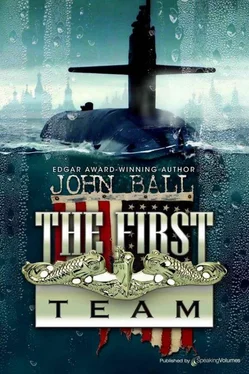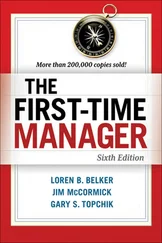Джон Болл - The First Team
Здесь есть возможность читать онлайн «Джон Болл - The First Team» весь текст электронной книги совершенно бесплатно (целиком полную версию без сокращений). В некоторых случаях можно слушать аудио, скачать через торрент в формате fb2 и присутствует краткое содержание. Год выпуска: 2013, Жанр: Триллер, на английском языке. Описание произведения, (предисловие) а так же отзывы посетителей доступны на портале библиотеки ЛибКат.
- Название:The First Team
- Автор:
- Жанр:
- Год:2013
- ISBN:нет данных
- Рейтинг книги:5 / 5. Голосов: 1
-
Избранное:Добавить в избранное
- Отзывы:
-
Ваша оценка:
- 100
- 1
- 2
- 3
- 4
- 5
The First Team: краткое содержание, описание и аннотация
Предлагаем к чтению аннотацию, описание, краткое содержание или предисловие (зависит от того, что написал сам автор книги «The First Team»). Если вы не нашли необходимую информацию о книге — напишите в комментариях, мы постараемся отыскать её.
Student protesters are being slaughtered in the Midwest.
The Jewish pogroms have begun.
You are now living in Soviet — occupied America!
One nuclear submarine and a handful of determined patriots against the combined might of Russia and Soviet-occupied America… The Most Explosive and Gripping “What If” Novel of Our Time!
First published January 1971
The First Team — читать онлайн бесплатно полную книгу (весь текст) целиком
Ниже представлен текст книги, разбитый по страницам. Система сохранения места последней прочитанной страницы, позволяет с удобством читать онлайн бесплатно книгу «The First Team», без необходимости каждый раз заново искать на чём Вы остановились. Поставьте закладку, и сможете в любой момент перейти на страницу, на которой закончили чтение.
Интервал:
Закладка:
The colonel gasped and his eyes opened wide. “That’s for calling me a nigger,” Frank panted, not caring whether he was heard or not. Once more he raised his right arm, the edge of his hand hard with his fingers bent slightly backward at their base, slightly curved forward at the joints. In that rigid karate position he smashed it down, with the concentrated remnants of his strength, across the bridge of Rostovitch’s nose.
“And that,” he gasped, “is a present… from the Marines.”
He lay still after that for several seconds across the man he had felled. Gradually his wind came back and the wellsprings of his body recovered a little from the savage beating he had taken. When he had the strength to do so, he lifted himself up a little with his arms and battled to regain control of himself. His shoulder, his leg, and his chest were all racked with agony, and his vision was not entirely clear. When the focus began to come back he looked down at the man who lay underneath him. He studied the features and saw that the nose had almost disappeared from the face; the narrow bone that had given it shape had been driven back into the skull. When he saw that he knew that Rostovitch was dead.
It was a full half minute later before he managed to draw his legs up closer to the rest of his body and get unsteadily to his feet. He knew that he had only minutes more to live, if that, but he no longer cared. He saw the small hand gun lying on the carpet and considered picking it up. Then, realizing the futility of it all, he kicked it aside, fie had sold his life for a good price and he was satisfied.
When he was able to walk he made his way unsteadily to the door and knocked.
25
As Feodor Zalinsky lay in his hospital bed he could not decide whether he had more pain from the healing incision in his abdomen or from the thoughts pounding in his brain. At least physically he knew that he was on the mend, and perhaps some of the annoying problems that had plagued his body in the past would now be over. That much was good. Mentally things were getting progressively worse. He had been keeping very close watch over his television set, but the steady flow of dispatches from the White
House that he had been receiving had dwindled rapidly during the past twenty-four hours. In plain language that meant one thing: Gregor Rostovitch was taking over.
The constant parade of medical attendants in and out of his room he accepted as necessary; since he was in their hands he cooperated with their demands and endured their ministrations without complaint. In return for this they had given him what was obviously expert care from the beginning and had even gone so far as to prepare certain foods which he sensed were not part of the usual hospital routine. The guard that had been stationed in his room he had ordered removed as unnecessary and at times inconvenient, such as when he wished to use the bedpan. The man sat outside, across the hall in a chair that had been provided for him, and thereby allowed Zalinsky some partial feeling, at least, of privacy and quiet. He rested as best he could and thought, more often than he wanted to, of his home and family that were so distant in both time and kilometers.
When three more medical people came unannounced into his room he looked up to determine what new benevolent discomfort they were about to inflict on him. Then one of them pulled down a surgical mask and said to him in his own language. “Good afternoon, Mr. Zalinsky, how are you feeling?”
Zalinsky lifted himself on his elbows, looked into the face of the man who had spoken to him, and said, “You have just assassinated yourself.”
Hewlitt shook his head. “I hope not, because a lot more depends on my talking to you than just my own personal welfare. I asked, how are you feeling?”
Zalinsky fell back onto the pillows propped behind him. “I am progressing, or so I am informed. Perhaps in a week I shall be better. I now ask you a question: is it true that you had an interview with Colonel Rostovitch in my office from which you walked away a free man?”
Hewlitt nodded. “In part, yes. I did talk to Colonel Rostovitch; he accused me of being a spy.”
“He was right, of course. How, then, did you get away?”
“He accused me also of sleeping with Amy Thornbush. I remembered that you had mentioned that name to me and I guessed what it might mean. So I gave it back to him and walked out while he was checking up on it.”
“Your life expectancy is now shorter than the needles that they plunge into me here. Why have you come to see me?”
“Because of what Colonel Rostovitch has done and what he proposes to do.”
Zalinsky rolled his head on the pillows to loosen the muscles of his neck. “The hostages, I know. But you should know what kind of a man he is, the high diver should have told you.”
“He did, I spoke with him yesterday.”
“That is impossible unless you used radio; he is on board the submarine.”
Not to the slightest degree did Hewlitt reveal the electric feeling that those words conveyed to him. He kept his face, his posture, and his voice unchanged. Percival stood on the other side of the bed, but there was no way he could pass the information, and Percival did not understand the language they were using.
“Mr. Zalinsky,” Hewlitt said. “I have known you now for some time. You are a very tough person, I have never underrated you there, but you are also a practical man with common sense. You can run steel mills.”
“If you are asking me to countermand Colonel Rostovitch, you have undertaken a hopeless task. I am the administrator; I run the country, yes, but its internal security is entirely up to the colonel, and he reports directly to the premier.”
“So do you, isn’t that so?”
“Yes, but the colonel…”
“Mr. Zalinsky, I have come to tell you something. Colonel Rostovitch received a message, only a few minutes ago, from Thomas Jefferson. Do you know what it is?”
“What is Thomas Jefferson? Of course I know!”
“I mean, do you know what the message said?”
“It has not yet been transmitted to me.”
Hewlitt was not certain, but he thought that he detected a hint of bitterness in that. The message probably would be relayed on to Zalinsky — but it might be delayed.
“I have been told what it is,” Hewlitt said. Then he quoted the context exactiy, translating it for the benefit of the administrator. “You are very important to this Thomas Jefferson, is it not so?”
Hewlitt shook his head. “No, Mr. Zalinsky, I am not. I have nothing whatever to do with decision or policy. I was sent to see you only because we know one another.”
“What is it that you want from me?”
“Mr. Zalinsky, like every decent human being, I do not like to see people die in war.”
Hewlitt was only beginning, but Zalinsky interrupted him. “Then it is easy, surrender as you were directed; give up your few and save the great many.”
“You don’t fully understand, Mr. Zalinsky. We do not want people like Colonel Rostovitch keeping watch over everything that we do, and doing the things that he has done in the past. Mr. Zalinsky, I do not want one thousand of our people to die, but much more I do not want to see three million of your people die. And more than that if the Ramon Magsaysay unleashes her full power. You will have no country left.”
“And neither will you.”
Hewlitt nodded. “But at the moment, we have much less to lose than you do, because our country has been largely taken from us. Think, Mr. Zalinsky, and count up the nations that you can call your enemies whonvould rush in to finish the job if we lay you flat on your back.”
“I am precisely in that position now,” Zalinsky said. “It is visible to you.”
Читать дальшеИнтервал:
Закладка:
Похожие книги на «The First Team»
Представляем Вашему вниманию похожие книги на «The First Team» списком для выбора. Мы отобрали схожую по названию и смыслу литературу в надежде предоставить читателям больше вариантов отыскать новые, интересные, ещё непрочитанные произведения.
Обсуждение, отзывы о книге «The First Team» и просто собственные мнения читателей. Оставьте ваши комментарии, напишите, что Вы думаете о произведении, его смысле или главных героях. Укажите что конкретно понравилось, а что нет, и почему Вы так считаете.












